About That Ten Point Democratic Gain In The Latest Gallup Poll
According to Gallup, there was a ten point move in the public's preference on the Generic Congressional Ballot between last week and this week. What's more likely is that Gallup is making a mistake somewhere.
Last week I noted that the Gallup General Congressional Ballot Poll showed Republicans with the largest lead in the history of Gallup polling that question. This week, Gallup is out with a poll that purports to show that the parties are tied:
PRINCETON, NJ — Republicans and Democrats are tied at 46% among registered voters in Gallup’s weekly tracking of congressional voting preferences, marking a shift after five consecutive weeks in which the Republicans held the advantage.
These results are based on aggregated data from more than 1,650 registered voters surveyed Aug. 30-Sept. 5 as part of Gallup Daily tracking. The results reflect more competitive voting intentions than has been the case recently. Republicans’ leads over Democrats among registered voters in three of the previous four weeks were the highest Gallup has measured for this midterm election campaign, and higher than any GOP advantage Gallup has measured in a midterm election year since 1942.
Last week marked the return of President Barack Obama from his 10-day vacation, and included his national address to announce the official end of combat operations in Iraq. The president’s three-day job approval rating rose to 47% for Aug. 29-31 — a level it had reached only once since mid-July. Last week also brought media commentary in the aftermath of conservative talk-show host Glenn Beck’s massive rally in Washington, D.C. It is not clear if these or other factors affected Americans’ voting preferences as measured by the generic ballot.
Whether the 2010 race has shifted more permanently to a more competitive positioning will be apparent in the coming weeks. Nevertheless, even the current tie in the generic ballot among registered voters points to a better year for Republicans than for Democrats, given the GOP’s usual advantage in voter turnout in midterm elections.
Interestingly enough, though, the poll showed Republicans with the same advantage in entusiasm we saw last week:
There has been no change in the advantage Republicans hold over Democrats on motivation to vote in the fall elections. Republicans remain twice as likely as Democrats to be “very enthusiastic” about voting, tied with the previous week’s measure as the largest such advantage of the year.
Recent Gallup research has shown that Republicans, and conservative Republicans in particular, have given much more thought than Democrats to the upcoming congressional elections, another key measure of turnout used in Gallup’s likely voter modeling.
Nonetheless, what’s going on here ? Not surprisingly, many blogs on the left are citing these Gallup numbers as evidence that the midterm situation isn’t as rosy for Republicans as recent analysis has claimed. However, a closer look reveals that there’s something going on with Gallup this year that should give pause to anyone considering relying on their numbers.
First, take a look at this chart:
The poll has fluctuated significantly since March and, at one point, even claimed to show the Democrats leading the the Generic ballot as recently as six weeks ago. While it’s entirely possible that the public really doesn’t know what it wants, fluctuations like this are unusual and could be a sign that Gallup’s polling model isn’t accurately reflective of the public as a whole.
Second, it’s worth noting that there’s an important difference between this Gallup poll, the NBC and ABC polls I wrote about yesterday, and the Rasmussen poll that came out yesterday as well. For some reason Gallup is still measuring Registered rather than Likely Voters. With only eight weeks left to go until election day, the predictive value of a Registered Voter poll is fairly low.
Third, there’s one simple fact — any poll that fluctuates ten points in any direction over the course of seven slow news days should be viewed with suspicion, a fact which NBC’s Chuck Todd acknowledged yesterday:
We specifically advise our colleagues to be leery of Gallup. Most, if not all, NBC news shows avoid.
Of course NBC has its own polling unit and its own polls to promote, but Gallup is a name with a long history in American politics. To hear political analysts dismissing it like that this year seems to confirm the idea that Gallup just isn’t getting it right this time around.
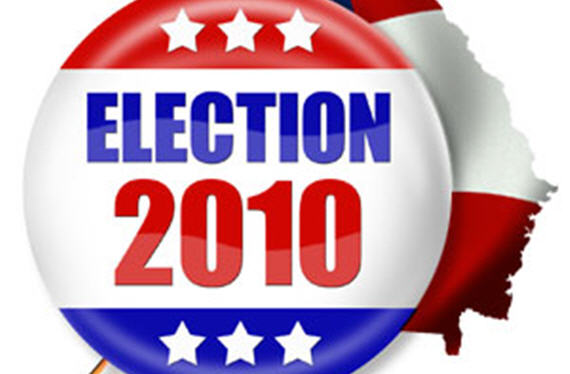
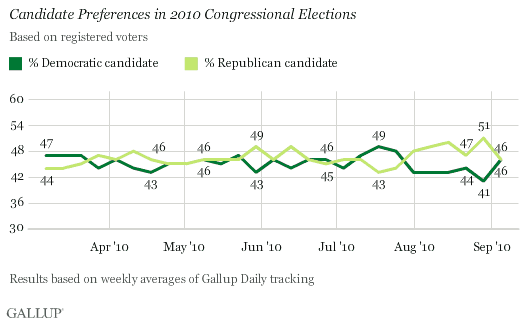



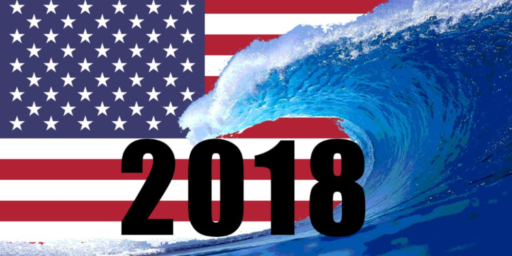
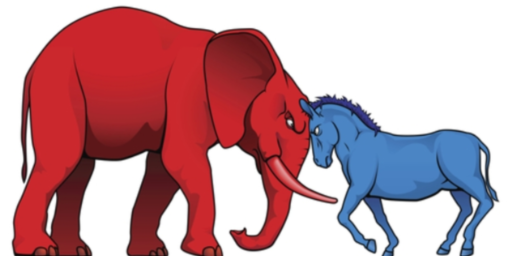
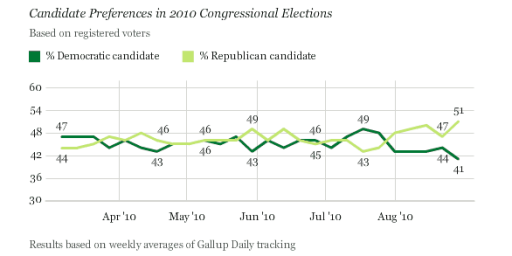
Gallup’s a venerable polling firm but they’re basically producing funsie polls here, sampling “adults” or “registered voters” in smallish batches, producing high sampling error rates. Using rolling data and then touting the overnights is great for headlines but not exactly science.
NBC hires out its polling, usually in collaboration with WSJ, to Hart and McInturff. The later is a founding partner of my wife’s firm.
I remember when McCain was leading Obama in all the polls.
I think Daniel Larison puts his finger firmly on just what’s wrong with all this hub bub re the generic polls (written before the latest one):
Better to quit looking at the forest and start looking at the individual trees.
Many of my friends, including myself, are sick and tired of Democrats but don’t really see electing Republicans as the answer as they are just as bad.
geez, worse than I expected. Far worse.
You really run with “its a crap poll” when it gives results you don’t like, and “here is what is happening!!!” when it says things you like.
You even give us a graph that shows the volatility of the poll, this week, as evidence of how we should discount the poll – while also showing the exact same graph last week, when you were completely uncritical.
This attitude is so beauitiflly summmarized in your first sentence.
.
My bolding got buried in the link highlights. I was trying to empahsize, of course, “showed” in the first sentence, and “purports to show” in the second.
“You really run with “its a crap poll” when it gives results you don’t like, and “here is what is happening!!!” when it says things you like.”
I believe this is known as Confirmation Bias.
I’ll wait for the November 2nd poll.
I can see November from my front yard. I think polls are great, however it matters a great deal what questions are asked and how they are worded. But if a party is consistantly on the wrong side of public opinion on numberous issues and an inability to bring about a reduction in the unemployment numbers. That party will lose seats in both houses. Democrats accused the GOP of spending wildly in 06 and 08. If a direct comparison of spending patterns is made. One can clearly see the Dems have, in two years spend more than the GOP spent in 6. Life was better in 2006 than it is in 2010. Its the economy, stupid.
ZR3, historically the sitting president almost always loses seats in the midterms, regardless of whether or not they are on the “wrong side of public opinion on numerous issues and an inability to bring about a reduction in the unemployment numbers.”
“historically the sitting president almost always loses seats in the midterms”
Right. And the real question is, will the Republicans win enough to control either the House or the Senate? I think that’s unknown at this time.
New WP-ABC poll:
4. Overall, which party, the (Democrats) or the (Republicans), do you trust to do a better job in coping with the main problems the nation faces over the next few years?
Democrats 40
Republicans 37
http://www.washingtonpost.com/wp-srv/politics/polls/postpoll_09072010.html?sid=ST2010090806236
James writes:
AH, James (and Doug), I guess you somehow missed the obvious here, but the Gallup poll and the NBC/WSJ poll got the EXACT SAME RESULTS. They both find that among registered voters, there is equal support for the two parties. ABC poll shows essentially the same with the GOP a mere 2 points up.
So you have three polls in complete agreement, and this causes y’all to pick out one for criticism???
No. It is pretty darn obvious that LAST WEEKS Gallup poll, which showed a 10 point lead for the GOP amongst registered voters, was the gross outlier. You remember – the one that y’all assumed was an accurate barometer of where the nation is.
Where do you get that from? Likely voter screens are ALWAYS problematical, because they ALWAYS require the pollster to basically throw out some of his data because he wants to make a guess as to the nature of the non-random subset of the all voters who will actually turn out. Of course, it is not wrong for pollsters to try to do that – it is simply a fact that there is a non-random subset of registered voters who actually vote. But still – it is a guess. And your only semi-reliable evidence for how to guess comes from answers to the question – do you intend to vote? Ask someone on election day, and you have a good chance of getting mostly correct answers. As them a day earlier, and the uncertainty of your responses rises. A week earler, it rises more. A month earlier it is substantial. Two months earlier (i.e. around now) is the first time where such screens can ever credibly be used (which is one of many reasons why Rasmussen is a joke outfit, given that they always use such a screen to basically always poll only a whiter, richer, more conservative subset of registered voters).
So no. There is nothing wrong with doing a registerd voter poll now. I don’t have great objections to doing a well-done likely voter screen either. In fact it can be an interesting exercise in how the two polls compare.
For now, the message seeems clear. Amongst all registered voters, or adults, the two parties are equal. Likely voter screens pick up the enthusiasm gap and yield results that are double-digit leads for the GOP.
This election seems to have little to do with preferences for one or the other party, and all about motivation to vote. That is why it may be easy for the Dems to make up the gap – they don’t have to really convince anyone of anything, they merely need to get their base to the polls at a reasonable rate.
So what if Republicans take both houses in November, they won’t be able to pass anything … filibuster anyone?
Another troubling poll – Rand Paul and Jack Conway now tied:
http://politicalticker.blogs.cnn.com/2010/09/08/cnntime-poll-ky-senate-race-all-tied-up/
That’s a 15 point drop for Paul…
The CNN polls registered voters.
The two polls that show Paul with a 15 point lead — SurveyUSA and Rasmussen — are polling using a Likely Voter model at this point.
So, you’re comparing apples and oranges
This has nothing to do with screening and everything to do with sampling error as the good Doctor’s initial post states. What you have to remember about polling is that each set of data are a mere “snapshot” of a population, frozen in time.
Gallup takes a ton of these “snapshots” and then merges them together, therefore Gallup is more likely to capture a weird cross-section of opinion.
While one can question their methodology, the result they get is neither right or wrong, it simply is an outlier, and as this post states people should be leery of an individual track of Gallup #s.
“So, you’re comparing apples and oranges”
But is the apple or the orange the better predictor for of election day results?